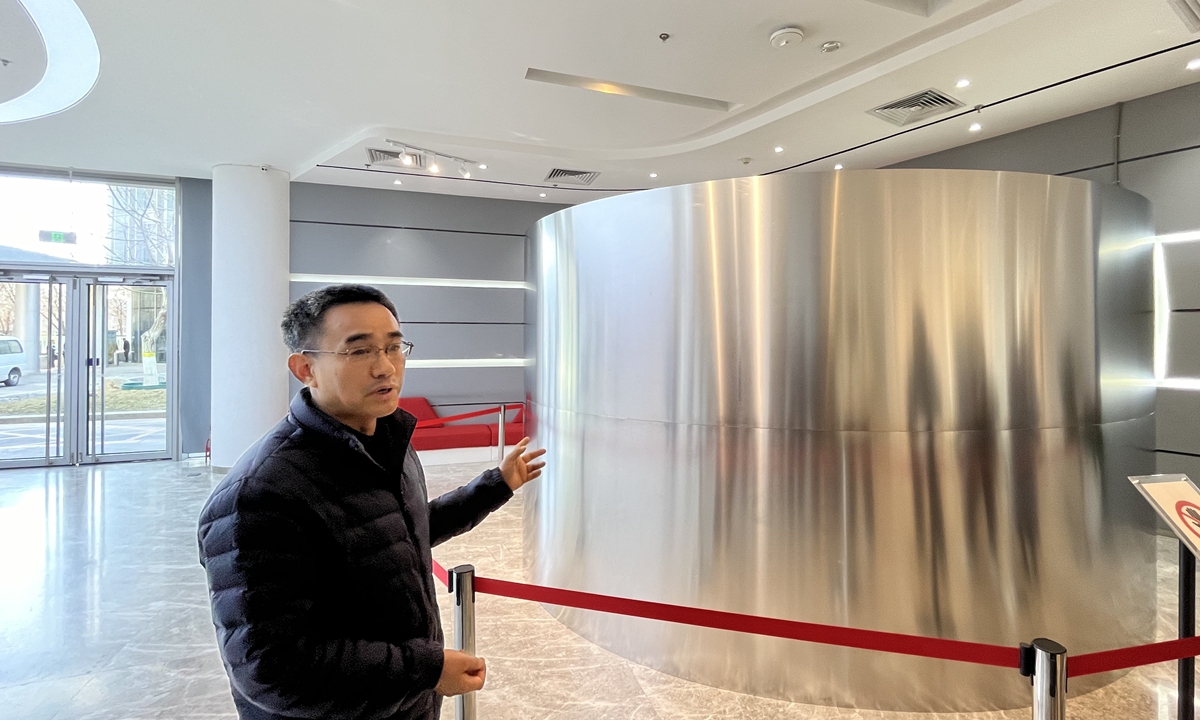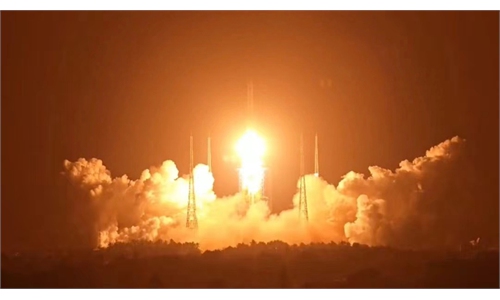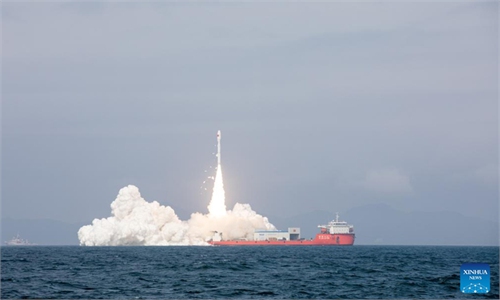
Liu Jian, a vice president of Chinese private aerospace firm LandSpace, demonstrates the properties of a rocket body made of stainless steel, a material vital to the upcoming age of reusable rockets in Beijing on March 19, 2024. Photo: Chu Daye/GT
China's efforts to build a shared sci-tech innovation infrastructure will be conducive to the development of high-tech industries such as commercial aerospace, industry experts said on Tuesday, as the Beijing municipal government races to build a "Rocket Street" with a high concentration of private aerospace companies.
The Chinese capital city announced in February plans for the establishment of a dedicated "Rocket Street" as a research and production hub for the advancement of commercial aerospace. Construction is set to begin in April.
The capital's endeavor to foster innovation comes amid the country's efforts to develop new quality productive forces and global commercial space competition involving big names such as SpaceX and Blue Origin.
Developing commercial spaceflight was listed among the key areas for the development of emerging industries in the Government Work Report, as the term "new quality productive forces" became a buzzword at the two sessions.
Reflecting a rising level of government support, "officials from the Beijing Economic-Technological Development Area [at Yizhuang] have since last year been approaching us concerning the joint building of the 'Rocket Street,'" Yuan Yu, a senior manager at Chinese private aerospace firm LandSpace, told the Global Times on Tuesday.
"In our understanding, the aim of the drive is to facilitate the pooling of resources and share some test equipment, as well as basic hardware and software that can be used commonly," said the manager.
LandSpace launched the world's first liquid oxygen, methane carrier rocket into orbit in July last year.
In January this year, the company completed a vertical takeoff and vertical landing test, laying the foundations for its self-developed ZQ-3 reusable rocket.
As a leading hub in developing the commercial space market, Beijing has been trying to pool its resources.
In 2023, a total of 13 space launches were conducted by China's private commercial rocket enterprises, all based in Beijing.
Jiang Guangzhi, director of the Beijing Municipal Bureau of Economy and Information Technology, said in February at an industry meeting that more efforts will be made this year to enhance the utilization of ground infrastructure, facilitate the construction of constellations and foster the widespread application of space information.
Beijing hosts a cluster of 157 enterprises specializing in commercial space, including a number of leading commercial launch start-ups.
Rocket companies are centered in the south of the city, with satellite-related enterprises gravitating to its north.
China's commercial aerospace enterprises were inspired as the Government Work Report vowed to step up the development of commercial spaceflight to foster new growth engines.
Industry insiders said 2024 will be a critical year for China's aerospace development, as about 100 launch missions will take place this year.
In 2023, domestic private rocket companies made 13 launches and successfully entered orbit 12 times, setting a new record in the eight years of China's commercial aerospace development, according to media reports.
Multiple localities in China have announced plans to develop the commercial aerospace industry.
In an action plan released last November, Shanghai said that it aims to achieve annual production capacity of 50 commercial rockets and 600 commercial satellites by 2025.




